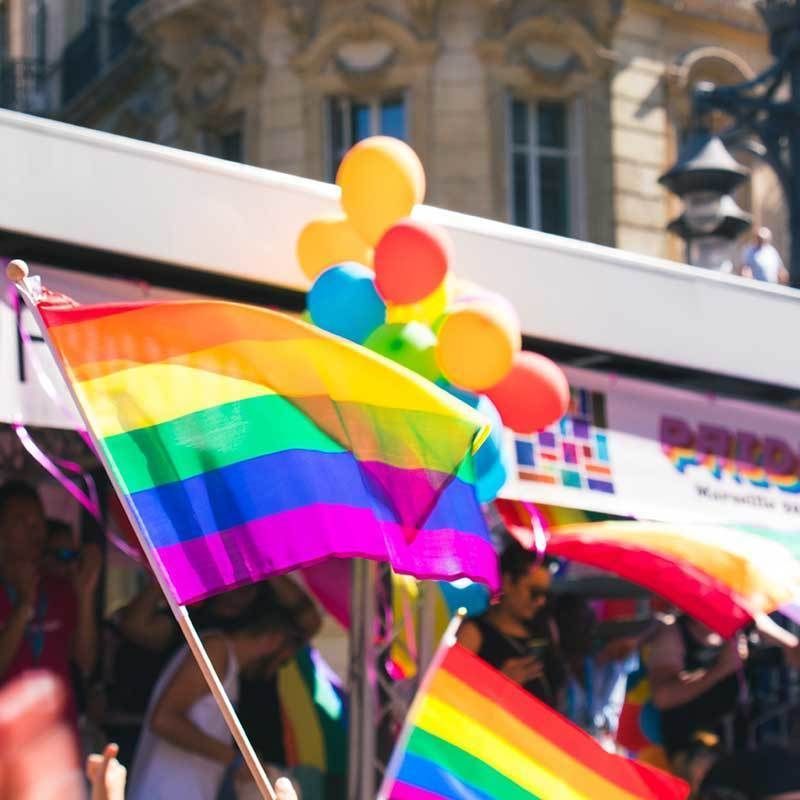
From parades and festivals to community organizing and mobilizing, June is Pride month- a joyful celebration of LGBTQIA+ rights, voices, stories, and experiences. Pride month is a time when the spaces are crafted where people can bring their whole selves and proudly declare I AM HERE. It’s a time when power is built through community, the kind of power that can only be created through acceptance and togetherness that embraces the resilience of past and present.
Pride month is also a reminder of progress in the fight for equality. From Stonewall to the Supreme Court the LGBTQIA+ community has and continues to organize, campaign, and mobilize to not only change policies but ensure that every LGBTQIA+ person can lead true and authentic lives.
While visibility for LGBTQIA+ people is at an all time high, so are state-led attacks on LGBTQIA+ rights. State houses across the country are weaponizing public policy restricting LGBTQIA+ rights. In 2023 alone, over 520 anti-LGBTQIA+ bills have been introduced in state legislatures, over 220 specifically targeting transgender and nonbinary people. 47 of these LGBTQIA+ erasure laws have been enacted, including laws that ban gender-affirming care for transgender youth, require or allow the misgendering of transgender youth, target drag performances, create a “license to discriminate,” and censor school curriculums, including banning books.
The LGBTQIA+ community experiences domestic violence at rates equal to or higher than those of heterosexuals. Yet only one in five survivors of same-gender sexual assault and/or domestic violence received victim services. One of the most significant barriers to accessing services, shared by LGBTQIA+ survivors is the lack of affirming or focused services. In fact, LGBTQIA+ survivors face a number of unique barriers to finding services including discrimination, isolation, lack of visibility, lack of support, internalized stigma, fear (particularly of arrest due to mutual abuse myth), concerns around safety, and possible denial from shelter. 46% of TGNC survivors felt uncomfortable seeking help from law enforcement and 28% have postponed victim services due to fear of discrimination. There’s work to be done- but where to start?
There’s no better time than the present. Whether your agency has a long-standing history of authentically serving LGBTQIA+ survivors or is just starting on this journey, here are a few resources to be celebrated this Pride month.
1. Use inclusive, person-centered language.
a. Revise intake forms
i. include pronouns and name (if different from legal name)
ii. expand gender and sexual orientation options
b. Introduce yourself, sharing your name and pronouns
c. Avoid heteronormative assumptions
2. Create a welcoming space.
3. If you are not sure, ask!
4. When you make a mistake, correct yourself and MOVE ON.
a. Innocent mistakes happen. A best practice is to acknowledge your mistake, apologize, and move forward.


